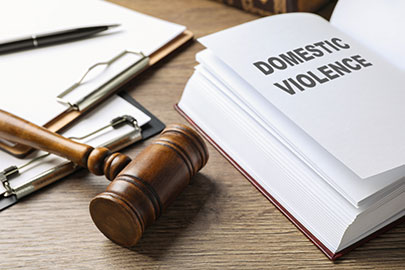
Facing a domestic violence defense in Texas is serious, and what you do—or not do—immediately afterward can significantly impact your future. Whether the allegation is true or not, your rights are on the line from the very beginning. In this article, we’ll explore…
- What to do after an accusation of domestic violence.
- How to protect your record and parental rights.
- What legal strategies can help you navigate the uncertainty ahead.
What Should I Do Immediately After A Domestic Violence Accusation To Protect My Rights?
The most important thing you can do is stay silent and contact an attorney immediately. That means no conversations with police, the alleged victim, friends, family, or anyone else. Don’t text, email, post on social media, or try to explain your side. Everything you say can be twisted or taken out of context, and even worse, anything someone claims you say can be admissible in court.
Even if you believe you’re innocent, speaking out without knowing what evidence exists against you can be incredibly damaging. You may not yet know what the alleged victim told police, whether there are witnesses, or if surveillance footage exists. Once your attorney has reviewed the evidence, namely police reports, statements, and any audio or video, they can help you decide whether and how to speak with law enforcement or other agencies.
Silence protects you from misinterpretation and false accusations. Your attorney will guide you through each step from there, including whether you should speak to Child Protective Services (CPS) if they become involved.
Can I Be Arrested For Domestic Violence In Texas Without Any Physical Evidence?
Texas law allows a person to be arrested and even convicted of domestic violence based solely on the testimony of a single witness. Known informally as the One Witness Rule, it means that if a jury finds that one witness is credible and their testimony meets all the legal elements of the charge, that alone is enough for a conviction. There is no requirement for physical evidence like bruises, surveillance footage, or text messages. In many cases, the entire case rests on one person’s word against another’s.
How Can I Safely Document My Side Of The Story In A Domestic Violence Case?
While it’s vital not to speak freely with police or others before consulting your attorney, you can still privately collect and preserve evidence. This may include:
- Photos or videos taken during or after the incident
- Screenshots of texts, emails, or social media posts
- Statements made by the alleged victim or witnesses
This evidence can help your attorney build your defense. However, do not share this documentation with anyone but your lawyer. And never post it online or send it to others. Doing so may backfire in court.
Can I Return Home If I Am Accused Of Domestic Violence And Live With The Alleged Victim?
Whether you can return home depends on court-imposed restrictions. You may be subject to bond conditions that prohibit contact with the alleged victim or returning to the residence where the incident occurred. You may also be subject to an Emergency Protective Order (EPO), often issued immediately after an arrest, which can prevent contact with your spouse, children, or even your home for up to 60 days.
Even if the law doesn’t explicitly prohibit you from returning home, you need to ask yourself whether it’s a wise decision. Reuniting with the alleged victim too soon could escalate tensions or violate the spirit of the court’s intentions.
What Legal Steps Can Help Preserve My Parental Rights?
If CPS becomes involved, the first rule is simple: do not speak with them without your attorney present. While CPS’s mission is to protect children, their investigations can be aggressive and based on incomplete or inaccurate information. You may not know who they’ve spoken to or what accusations have been made.
Let your attorney handle communications. They can request information from CPS and law enforcement to understand the nature of the allegations and ensure you are not tricked or pressured into saying something harmful. Your lawyer will also ensure that CPS follows proper procedures and doesn’t act beyond their legal limits.
Beyond that, the most important step is building a defense based on facts and evidence. That means carefully reviewing all discovery from the state, from police reports, videos, and statements, and conducting a thorough independent investigation. Your attorney may find witnesses the police overlooked or evidence that contradicts the original accusation.
Once the facts are known, your attorney can begin negotiating with the prosecutor, pushing for dismissal, a reduced charge, or a probation offer. Whether you go to trial or accept a plea deal ultimately depends on the risks, the prosecutor’s final offer, and your comfort level with letting a jury decide your fate.
What If It’s Just Their Word Against Mine, And The Evidence Is Paper-Thin?
When a case lacks physical evidence and relies heavily on the alleged victim’s version of events, the defense often focuses on credibility and consistency. If the accuser’s story changes over time, if there are no corroborating witnesses, or if the physical evidence doesn’t match the claims, that creates reasonable doubt.
But juries are unpredictable. Even weak cases can result in convictions if jurors connect emotionally with the alleged victim or don’t fully understand the legal standard of proof. That’s why your attorney will weigh the risk of trial versus the plea offer carefully before deciding how to proceed.
Still Have Questions? Ready To Get Started?
For more information on domestic violence defense in Texas, an initial consultation is your next best step. Get the information and legal answers you are seeking by calling (817) 678-5080 today.
